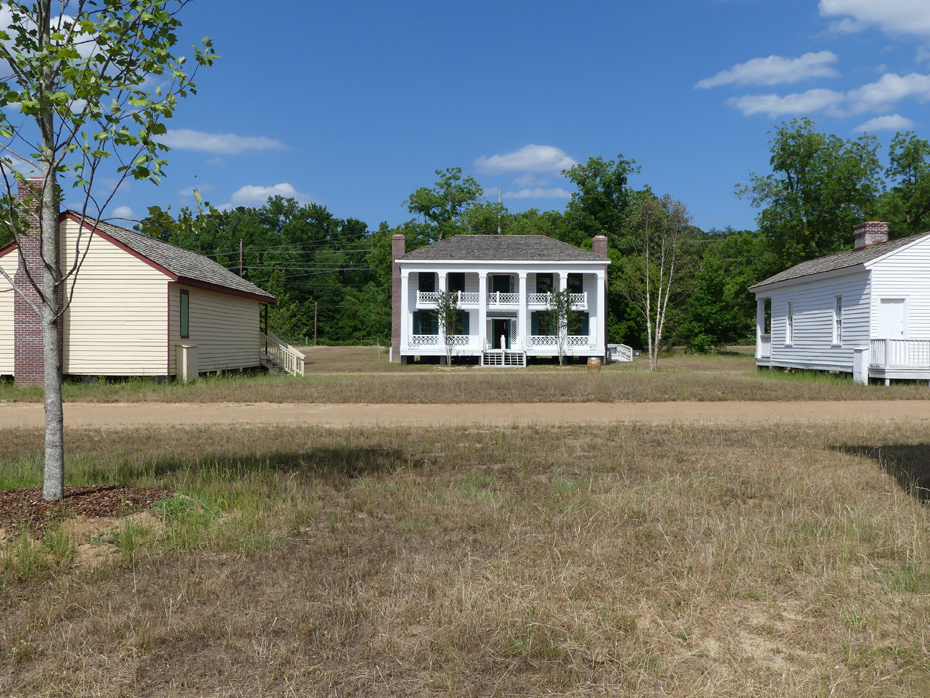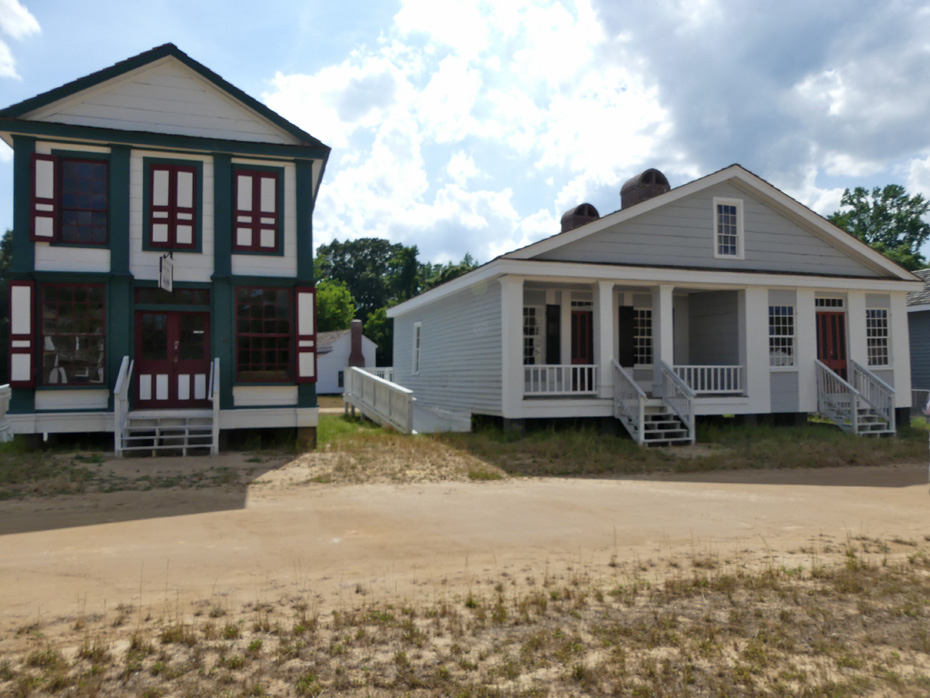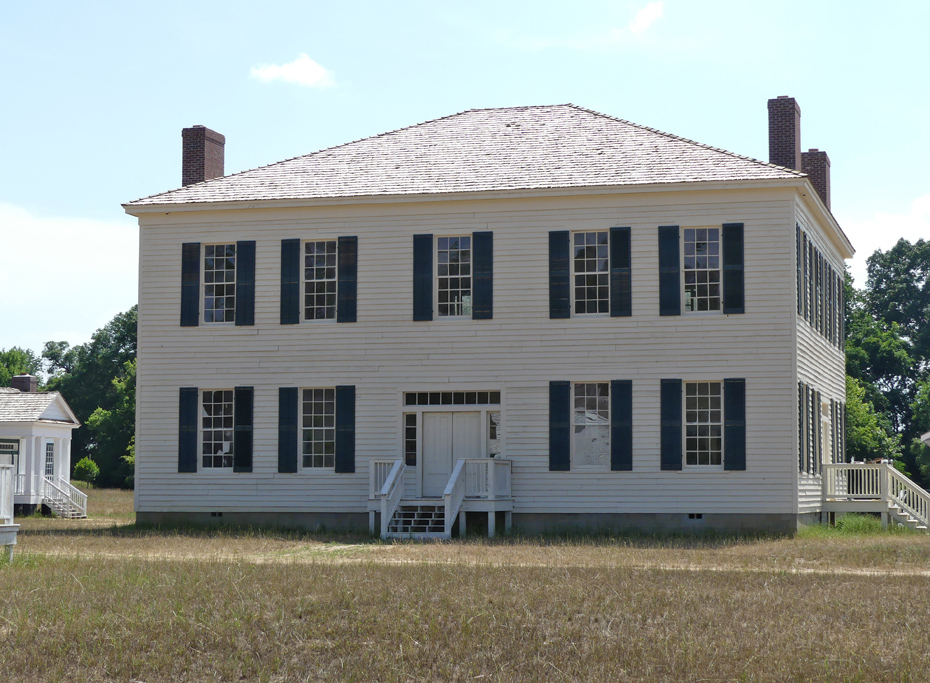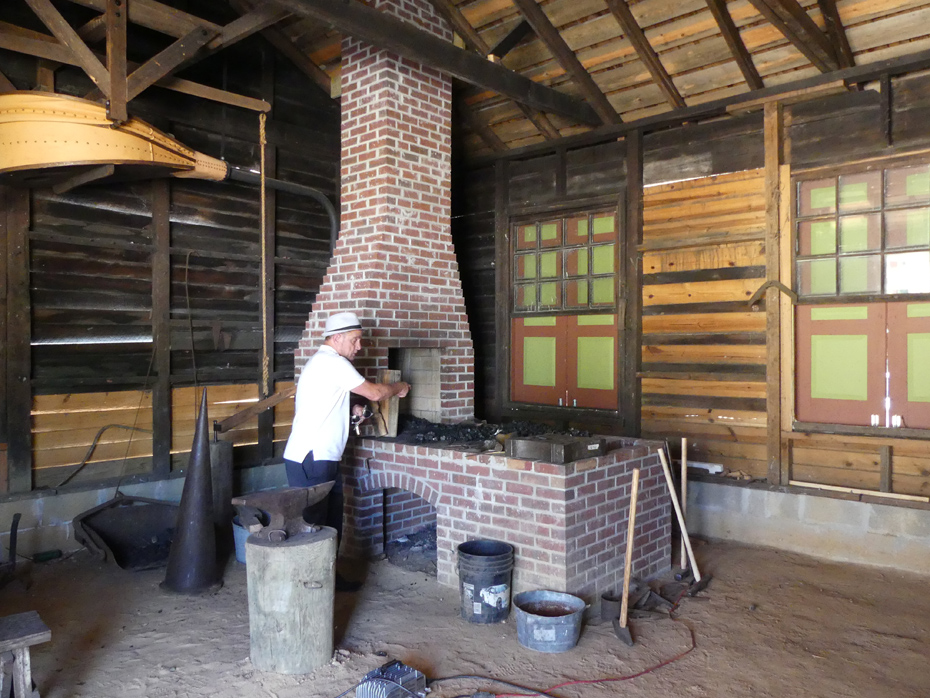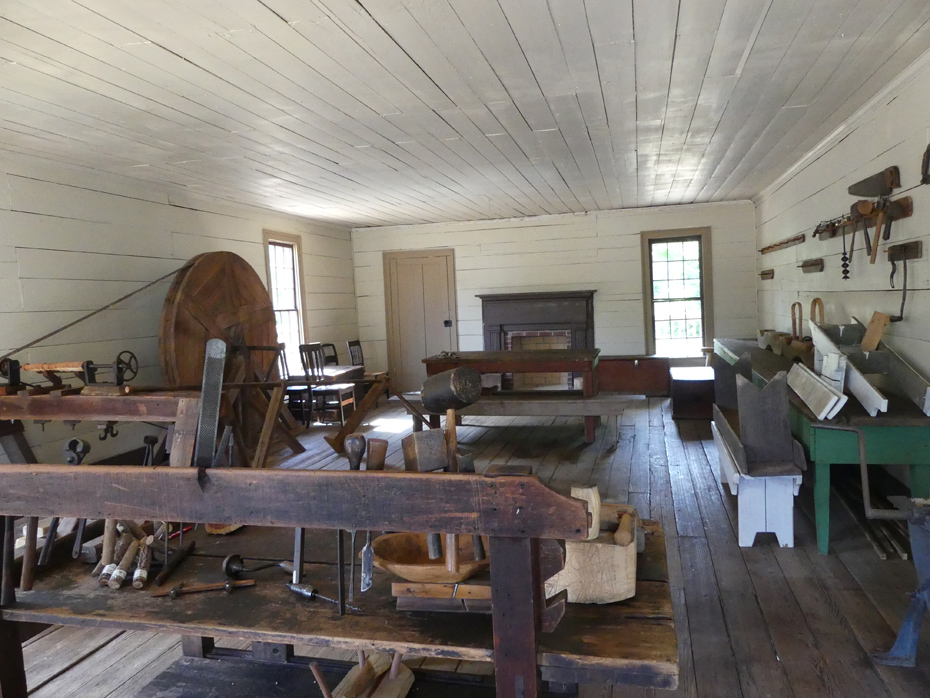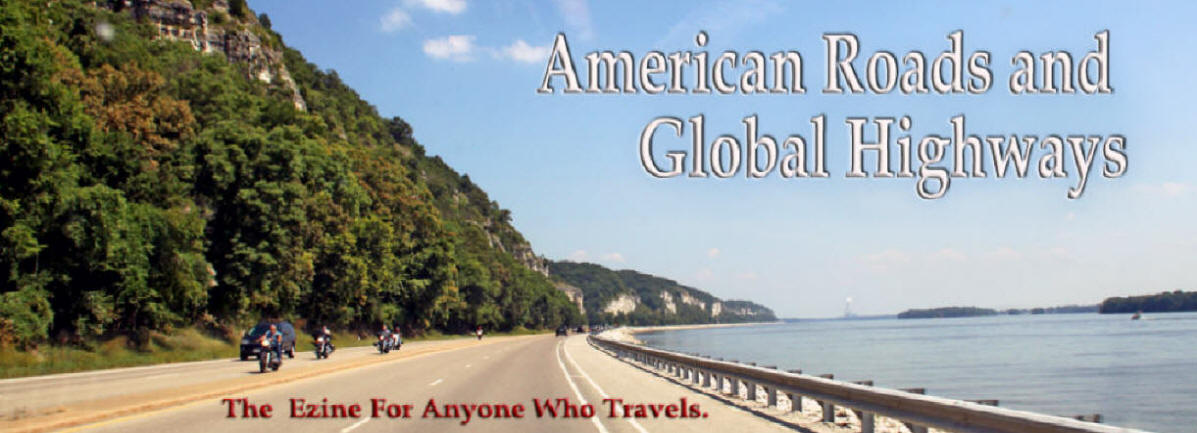
|
|
|
|
|
|
|
|
|
|
It's fun when something old gets refurbished to live again. But when that something gets a second rebirth it is really something unusual. This is happening now with Historic Westville. You say you've never heard of Westville? You will soon. It's quite a story. The first Westville was never really a living town. It was the brainchild of Colonel John West a history professor who saw progress destroying history. He decided to do what he could to preserve it by buying up old buildings before they could be destroyed. For more about the original Westville go here.
After Westville could no longer sustain itself in 2016, it began its move to Columbus, Georgia. On June 22, 2019 the new recreated Westville reopens. I got a sneak preview and can tell you it will be as great an experience as before if not better. Many of the buildings that had become rundown are restored to reflect the mid-19th century safely. One of the first things reflecting that safety factor is the road leading into Westville. Naturally in the 1850s that road would have been dirt. Today it has to meet modern standards. Allen Sistrunk, executive director, told us how they worked to provide a historic look with modern requirements. "Rather than have an asphalt road, we used a polymer that glues the native soil together and can accommodate an 80K pound First Responder vehicle." Looking at the road it appears a country dirt road that would have accommodated nothing but horse drawn wagons in an earlier era. They are planting a grove of long leaf pines as that would have been the most common building material in middle Georgia in the 19th century. They plan to leave most of the landscaping natural so it looks like you are riding into the country.
All of the homes here now are phase one of the plan. There will be a dining area on site. You will meet costumed docents in each building. Phase two will add the Moye House, an Antebellum home, and include a barn, cotton gin, smokehouse, livestock, with fields growing crops like cotton, sweet potatoes and sorghum, possibly sugar cane. That grouping will represent plantation agricultural culture. Another phase two plan will include a European settlers' community. Remember this is just a preview. Visit Columbus as soon as you can for the real deal.
We'd love your comments!
|
Connect with us on:
American Roads
and | ||
|
Public Disclosure--
Please Read The FTC has a law requiring web sites to let their readers know if any of the stories are "sponsored" or compensated. We also are to let readers know if any of our links are ads. Most are not. They are just a way to direct you to more information about the article where the link is placed. We also have several ads on our pages. They are clearly marked as ads. I think readers are smart enough to know an ad when they see one but to obey the letter of the law, I am putting this statement here to make sure everyone understands. American Roads and Global Highways may contain affiliate links or ads. Further, as their bios show, most of the feature writers are professional travel writers. As such we are frequently invited on press trips, also called fam trips. On these trips most of our lodging, dining, admissions fees and often plane fare are covered by the city or firm hosting the trip. It is an opportunity to visit places we might not otherwise be able to visit. However, no one tells us what to write about those places. All opinions are 100% those of the author of that feature column. . |
|||
|
Privacy Policy/ Archives /
Contributors /
Subscribe to
American Roads Books by
Kathleen Walls /
Contact /
Sponsor or Advertise/ American Roads & Global Highways Home Page
|

